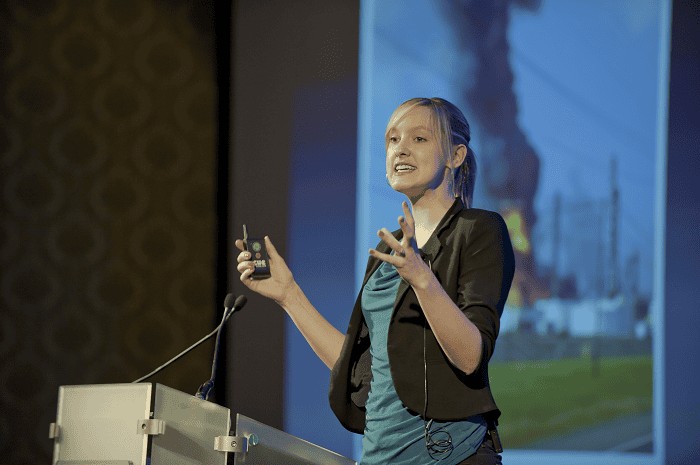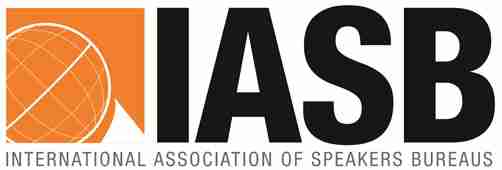- Author: Ryan Jenkins
- Word Count: 896
Read the news article
We are only as unified as our loneliest team or Disconnected Worker community members.
No one is immune to feeling lonely at work — not even the outgoing top sales associate, the customer success representative that brings her dog into the office, or the charming vice president who always declines every happy hour invitation due to “overcommitments.” Entry-level employees and managers share the same levels of average loneliness.
Since loneliness is a universal human condition and everyone is susceptible to experiencing it at work, it’s crucial that we know how to spot it in others. This is especially important because someone who experiences isolation and loneliness is likely to turn inward, become hypervigilant of personal emotions, and avoid others.
If avoiding loneliness was as easy as telling someone to go to happy hour, call a friend, or get a pet, then over half of workers wouldn’t be experiencing loneliness on a weekly basis. Because isolated people turn inward instead of outward for help, it’s up to the collective to proactively look for loneliness in others and pull them back into the tribe. In short, we are only as unified as our loneliest team or community members.
How to Spot a Lonely Coworker
At work, leaders and close colleagues are best positioned to spot workers struggling with loneliness. The signs may be subtle, but paying close attention is crucial to building strongly connected and resilient teams.
10 Signs of an Isolated and Disconnected Worker
Here are 10 common identifiers of lonely workers. As an exercise, think of someone on your team you suspect might be feeling lonely. Which of the following applies to that person?
1. Sloppy Work
Careless behaviors, a decrease in work quality, or irresponsibility from a usually dependable worker are indicators of potential loneliness. Sloppy work is a key indicator that people are working with a lessened sense of connection to either the team or their work.
Examples:
Missing project deadlines
Makes uncharacteristic mistakes
Takes shortcuts with clients or customers
Delivers incomplete assignments
2. Lack of Learning and Development
Curiosity and a growth mindset are good indicators of employee engagement. When employees are leaning into learning, they show a level of optimism about their future. When they don’t, it could be because they are disengaged or become a Disconnected Worker.
Examples:
Limited participation in training
Disdain for extracurricular activities
Doesn’t ask questions
Uninterested in career progression
3. Change in Routine
Engaged employees tend to be reliable, with recognizable routines. Reliable employees whose routines change might be an indicator of a growing sense of isolation.
Examples:
Showing up to work late
Taking extra-long lunches
Leaving or logging out early
Working late nights or weekends
4. Stops Offering Input
Feelings of insecurity are associated with loneliness. When workers stop offering suggestions or participating in goal setting, it could be because they do not want to be seen.
Examples:
Lack of eye contact during meetings
Not speaking during meetings
Doesn’t ask for feedback
Avoids planning or strategy sessions
5. Skips or Resents Meetings
Lonely people, paradoxically, may avoid others. Not showing up or arriving routinely late to meetings could indicate a disconnected worker. Lonely people can also be hostile to those around them.
Examples:
Not apologizing for being late
Keeping camera off during video meetings
Being disgruntled during meetings
Quick to anger while among others
6. Only Talks Work
Disconnected Worker are often unwilling to talk about non-work-related items. Only talking about work is a signal that someone isn’t interested in developing connections.
Examples:
Does not talk about hobbies
Shies away from discussing personal topics
Wary to engage in small talk
Deflects any non-work-related questions
7. Limited Interaction with Coworkers
Absent on communication platforms, long delays between communications, or avoiding small work gatherings are indicators that a worker might feel isolated.
Examples:
Avoids joining special interest workgroups
Eats lunch at desk
Lack of curiosity in others
Short responses during conversations
8. An Apathetic Attitude
An unwillingness to present or defend ideas, fulfill commitments, or be accountable can be a sign of loneliness. Lonely people often demonstrate more negativity.
Examples:
Passive approach to work
Low energy levels
Somber demeanor
Disinterested in serving customers
9. Unkempt Appearance
A disorderly workspace or appearance can be an indication of an indifference to establishing connections with fellow workers.
Examples:
Disheveled clothes
Ungroomed appearance
A messy desk or cluttered workspace
Recurring outfits
10. Excessive Working
Just as disconnecting from work could be a sign of loneliness, spending too much time working as a way to avoid personal responsibilities can point to an imbalance in social relationships. Taking on too much work can be leveraged as an excuse to avoid professional and personal social interactions.
Examples:
Volunteering for too many projects
Piling up vacation days
Returning emails late at night
Hurrying from meeting to meeting
Loneliness is a subjective experience, so there are no hard-and-fast rules about what it looks like. Many people may hide their feelings for fear of embarrassment, or because they don’t want to appear weak. This can make loneliness difficult to identify. As a member of a team, your best approach is to take the time to get to know and really understand others. This will help you to recognize when someone is feeling disconnected or left out by the rest of the team.
Ryan Jenkins is a generations speaker and expert.
Contact us at Speakers Inc and click here to find more Motivational Speakers
Further articles you may enjoy:
- (8)
Celebrating Women’s Month Las Vegas 2024 Introduction: March is not just a month on the calendar; it is a celebration of the strength, resilience, and achievements of women worldwide. Women’s Month is a time to honor the contributions of women in various fields, and Las Vegas is gearing up for an extraordinary celebration in 2024. […]
- March 7, 2024
- (8)
The Unseen Turbulence: How Aviation Keynote Speakers Can Navigate the Industry’s Workforce Crisis The aviation industry has long been a symbol of human ingenuity, progress, and ambition. Yet beneath its sleek exterior and technological marvels lies a crisis that few are willing to discuss openly. A severe workforce shortage is threatening the foundation of the […]
- February 11, 2025
- (105)
Zion Clark Story as an awe-inspiring athlete and motivational speaker, has recently joined Speakers Inc as an exclusive keynote speaker for corporate events. His life story, a testament to unyielding resilience and indomitable spirit, serves as a beacon of inspiration for anyone facing seemingly insurmountable challenges. Zion Clark Story: A Tale of Unyielding Resilience Overcoming […]
- September 9, 2024
- (8)
AI Powered Organisation will be different, just not in the ways you might expect. When evaluating the impact of new technology, business leaders often focus on the wrong criteria. The real issue is not whether there is a sound business case for cutting costs or increasing productivity through AI and automation, but rather, frankly assessing […]
- December 18, 2022
- (14)
Michelle Curran: A Beacon of Leadership, Motivation, and Teamwork In the dynamic landscape of leadership and motivation, certain individuals emerge as beacons, guiding others through the intricacies of teamwork and motivation. Among these luminaries stands Michelle “Mace” Curran, a name synonymous with excellence in leadership, motivation, and teamwork. With a background steeped in military expertise […]
- April 26, 2024
- (15)
Solly Moeng is an experienced professional Political journalist and Branding Speaker with a career that has seen him manage a variety of branding projects in various sectors and in countries spanning several continents. He is an established independent media professional with specialisation in Reputation Management, Stakeholder Engagement Strategies, Strategic Internal & External Communications, PR and […]
- December 20, 2022
- (33)
Corporate Events for 2025 have always been pivotal in fostering professional connections, enhancing brand presence, and sharing groundbreaking ideas. In 2025, this industry is experiencing transformative changes fueled by technology, sustainability, and evolving attendee expectations. Below, we explore the top trends redefining corporate events this year. Emerging Trends in Corporate Events for 2025 1. Hybrid Events […]
- January 8, 2025
- (6)
The Status Quo of Crisis Preparedness Puts You at a Disadvantage—and It’s Time For That To Change. Over the last couple of years, I’ve found myself increasingly frustrated with my industry, the crisis management profession. To put my frustration simply, the status quo of crisis preparedness and crisis management no longer suffices and, as a […]
- January 18, 2023
No results available











